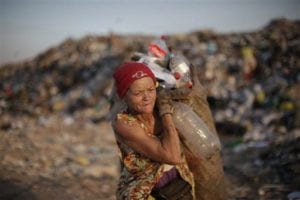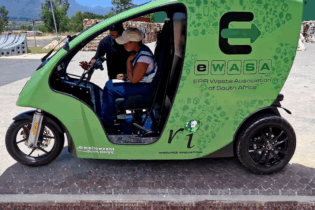An estimated 6 000 Johannesburg waste-pickers live off other people’s garbage.
They collect as much as 80% of post-consumer packaging and paper material, making South Africa’s recycling rate equivalent to that of some Western European countries. In part due to their efforts, SA is ranked third — behind Sweden and Switzerland — when it comes to recycling rates. Municipalities even save up to R750 million a year in landfill costs, said University of the Witwatersrand academic Melanie Samson. “There’s a tremendous stigmatisation around being a reclaimer, but they are solving our waste problem and created their own jobs in the context of unemployment,” said Samson. “It’s an informal form of wealth redistribution that’s a response to inadequate government policy. Many reclaimers choose this work as preferable to being domestic workers, construction workers or gardeners, where they lose control over their time and can be subjected to racism and abuse by employers.” However, according to n article by Financial Mail, they do all of this with little support from the government. And now their jobs are at risk, with bigger players edging them out of the market. Last year, Joburg introduced a compulsory separation-at-source programme, under which residents separate their waste themselves.In addition to the regular black bin, each of the 490,000households that are part of the programme is issued with a reusable bag for paper and a clear bag for other types of recyclables.
The programme, piloted by Pikitup at its Waterval depot in 2009, became compulsory in July last year. The effect has been dramatic. Reclaimers’ incomes have declined by more than 60% in areas where private companies have taken over waste reclamation. Ava Mokoena, chair of the African Reclaimers Organisation, estimates that reclaimers’ income has fallen from R250-R500 a week to about R100 since separation-at-source policies were introduced. But the Department of Environmental Affairs is working on guidelines to integrate them into the formal waste management sector. By giving them official status, waste pickers could get more access to opportunities and increased resources and the government is also hoping to address health and safety issues faced by these workers every day. The Environmental Affairs Department is expected to soon release the guidelines.







